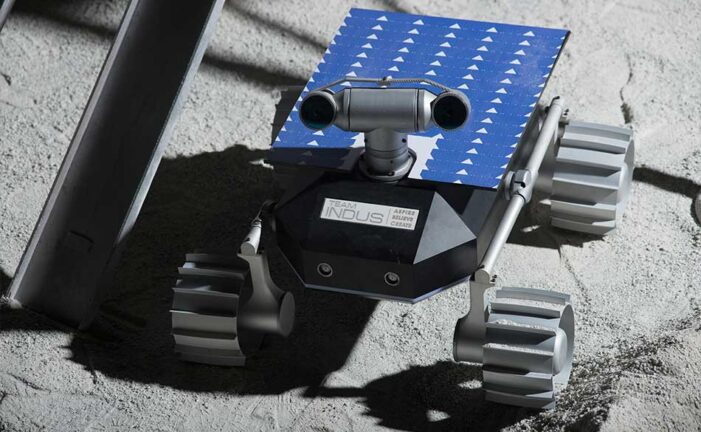XPRIZE and Google have announced that five finalists including India’s TeamIndus will be launching their verified moon vehicles to vie for $30 million lunar prize in the competition to land an unmanned spacecraft on the surface of the Moon.
The duo have also announced that a $1 million Diversity Prize will be split among 16 Google Lunar XPRIZE teams, to recognize each of their unique approaches and initiatives over the years.
Chanda Gonzales-Mowrer, senior director, Google Lunar XPRIZE said, “Each of these teams has pushed the boundaries to demonstrate that you don’t have to be a government superpower to send a mission to the Moon, while inspiring audiences to pursue the fields of science, technology, engineering, and mathematics.”
The five finalists in the final phase of the competition:
TeamIndus from India has entered into a commercial launch contract with ISRO to send its spacecraft aboard its PSLV. TeamIndus’ spacecraft is designed to nestle inside the nosecone of the PSLV and will launch from the Satish Dhawan Space Centre in Sriharikota, said the statement.
HAKUTO from Japan has already signed for a rideshare with TeamIndus to carry its four-wheeled rover to the Moon. Hakuto seeks to explore holes that are thought to be caves into underlying lava tubes, which could lead to identifying long-term habitats to shield humans from the Moon’s hostile environment.
SpaceIL from Israel has secured a position on a SpaceX Falcon 9 rocket and their vehicle will be designed to make an educational impact and to create an “Apollo Effect” for the next generation.
Moon Express from the US also signed a multi-mission launch contract with Rocket Lab USA for three lunar missions by 2020, to open up the Moon’s vast resources for humanity and establish new avenues for commercial space activities.
Synergy Moon, an international team, signed with InterOrbital Systems to launch its vehicle to moon aboard the rocket NEPTUNE 8. Synergy Moon consists of individuals from 15 countries, with a mission to make manned orbital travel, personal satellite launches and Solar System exploration cost effective for all.
Recognising their efforts, XPRIZE made an update that the launch be initiated by the December 31, 2017 deadline, instead of completed.
The $30M Google Lunar XPRIZE is meant for a privately funded team which should successfully place a robot on the Moon’s surface that explores at least 500 meters and transmits high-definition video and images back to Earth.

